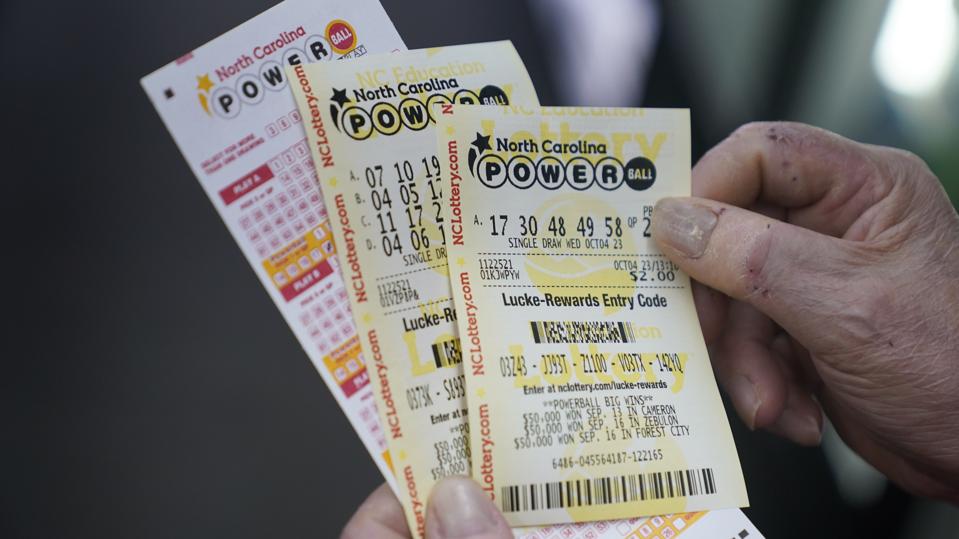Topline
The Powerball jackpot rose to $935 million—the game’s biggest prize of the year so far—after no tickets matched the numbers drawn on Wednesday night, but the eventual winner will take home a smaller amount after paying their taxes.
Key Facts
If a winner is found in the next draw, they will have to pick between receiving the $935 million amount split across 30 annual payments or a lump sum cash award of $449.7 million—usually the popular choice.
If the lump sum payment is chosen, the prize amount will drop to $341.77 million after a mandatory federal tax withholding of 24% is applied.
Depending on their taxable income, the winner could face a federal marginal rate as high as 37%, which would further slash the winnings to $283.31 million.
If the winner goes the annual payments route, their yearly installment of 31.2 million will drop to $19.6 million if the 37% federal marginal rate is applied.
The winner’s state of residence will also impact their take-home amount as some states like Texas and California don’t tax lottery winnings, while others like New York and New Jersey levy between 5% to 10.9%.
Big Number
1-in-292.2 million. Those are the astronomical odds a ticket buyer has to overcome to win the Powerball jackpot. This is only slightly better than the Mega Millions jackpot’s abysmal odds of 1-in-302.6 million.
Key Background
A single ticket sold in New Jersey won a $1.13 billion jackpot on Tuesday night. That is now the biggest lottery prize of the year so far, beating the $842.4 million Powerball jackpot won by a single ticket holder from Michigan on New Year’s Day. Tuesday night’s win was the fifth largest in Mega Millions history and the eighth-biggest overall lottery win in the U.S.
What To Watch For
The next Powerball draw will take place on Friday night.

